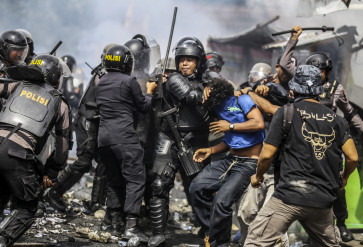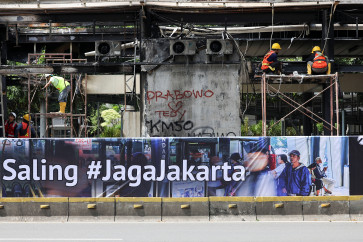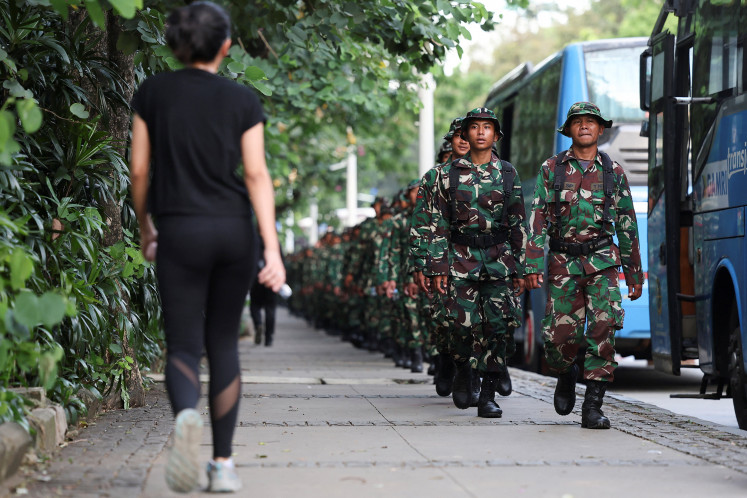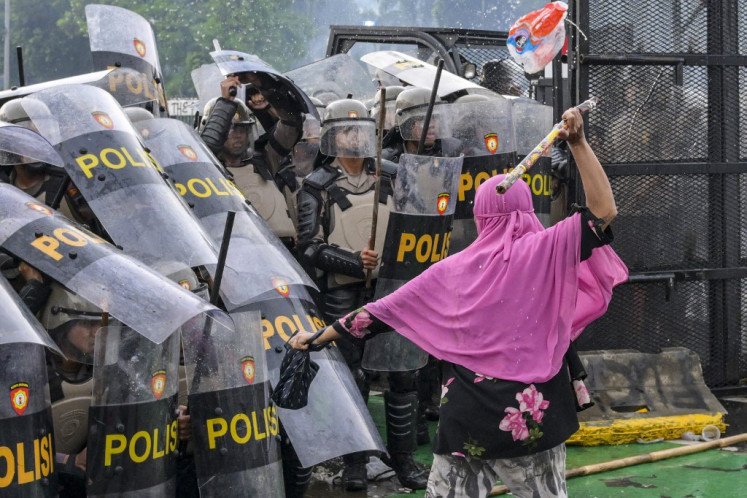Popular Reads
Top Results
Can't find what you're looking for?
View all search resultsPopular Reads
Top Results
Can't find what you're looking for?
View all search resultsTelkom to spend $3.7b on broadband
State-owned telecommunications firm PT Telekomunikasi Indonesia (Telkom) has committed to spending Rp 45 trillion (US$3
Change text size
Gift Premium Articles
to Anyone
S
tate-owned telecommunications firm PT Telekomunikasi Indonesia (Telkom) has committed to spending Rp 45 trillion (US$3.7 billion) next year to support the government's five-year broadband plan.
Telkom president director Arief Yahya said Wednesday that the amount was three times more than the company's budget for the project this year.
'We are spending around Rp 15 trillion on the project this year. For next year, it will be Rp 45 trillion,' he said, adding that his company had yet to discuss the budget allocation for the next three years.
Arief said that the funds were for Telkom's Indonesia Digital Network (IDN) project, comprising ID transmission, ID access and ID convergence.
From the total budget, 30 percent would be allocated to transmission cables, fiber-optic networks and satellites; 50 percent to providing wireless internet access (Wi-Fi); and the remaining 20 percent to developing technological convergence, he said.
Telkom's annual capital expenditure usually hits between Rp 20 trillion and Rp 25 trillion, 10 percent of which is used for its backbone and infrastructure; 20 percent for towers, information and technology (IT), media and international expansion; and 70 percent for cellular business.
Launched on Wednesday, the broadband project, dubbed the Indonesia Broadband Plan (RPI), highlights the government's targets in providing affordable broadband access to the majority of the country's population between the period of 2014 to 2019.
The project is estimated to require no less than Rp 278 trillion, part of which will come from the national budget.
Under the five-year plan, the government has put its broadband coverage target into two categories ' urban and rural areas.
The government aims to make fixed broadband accessible for 30 percent of Indonesia's urban population, covering 70 percent of urban households and 100 percent of office buildings by 2019.
For rural areas, the government aims to provide fixed broadband access to 6 percent of the rural population, covering 49 percent of households and 100 percent of office buildings.
The government, meanwhile, is targeting mobile broadband access reaching all of the country's urban population and 52 percent of the rural population with a speed of 1 megabit per second (Mbps).
Former communications and information minister Tifatul Sembiring, who is now a member of the House of Representatives, said that the establishment of the broadband infrastructure would also involve the private sector, without detailing what amount of support would come from the sector.
'The RPI has not been proposed to the transition team [of president-elect Joko 'Jokowi' Widodo]. However, the National Development Planning Board [Bappenas] has previously discussed the broad outline of the RPI with the team,' he said.
Tifatul said that the implementation of the RPI would drive the country's economic growth in the future, adding that the telecommunications and transportation sectors had so far contributed 10 percent of the country's economic growth.










